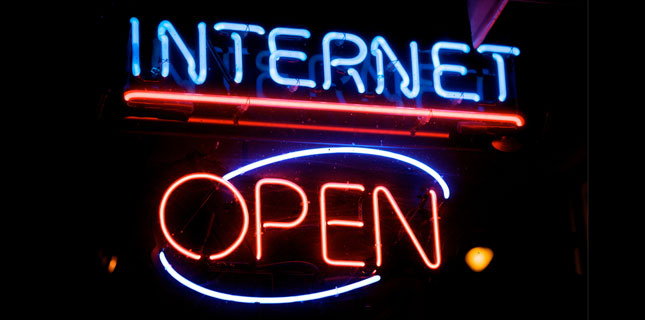With net neutrality about to die at the hands of the FCC, Mozilla has devised a plan to change the game:
Mozilla filed a petition with the FCC Monday asking the agency to recognize that, in addition to the relationship between ISP’s and their end customers, there is a separate relationship between the content provider (Amazon, Google, Netflix etc) and the ISP, and that relationship should be classified as transport under Title II of the 1996 Telecommunications Act.
Instead of saying the ISP simply has a duty to deliver all packets over its pipes to the consumer without discrimination, Mozilla claims there is a second legal obligation: a duty the ISP owes to content providers, who expect their packets to be delivered in a neutral manner. Mozilla suggests that the FCC split this relationship into two relationships, and that it classify the content-provider and ISP relationship as transport.
In that way, the FCC can continue making rules on the consumer side under the current regulatory regime, but apply more regulatory oversight between the ISP and the content provider. The proposal would also protect net neutrality on wireless networks.
Mozilla’s argument is that the internet should be classified as a public utility, giving the FCC even further regulatory power, and their argument is very compelling.
Now I know it might be hard to accept the internet as a utility, as opposed to a service, but consider let’s put this into a different scenario – say power. Say you own a local store and it is really giving the new Walmart some serious competition. Well Walmart doesn’t like that, so they decide to buy the local power company just so they can jack the rates up to that store in hopes of pushing them out of business. Since power is a public utility, that kind of discrimination is illegal under public utility laws. It’s a form of regulation that actually helps the free market, by forcing the playing field to remain level.
Now what if these were two online stores? Say Amazon and a start-up online retailer. With the end of net neutrality, Amazon could pay the internet providers for the faster pipeline, insuring that their website loads in a second or two, while that new startup is stuck on a slower pipeline, and each page taking 5 or 10 seconds to load. Now you might be asking if a few seconds really makes a difference. Yes it does. Search engines like Google actually calculate page load speeds into their search rankings. For a new startup, it’s already hard to get on the first page of search results, especially when competing with a site like Amazon, that gets millions of hits per day. Now add in a slower page load time, because you can’t afford the extortion of all the internet providers, and you end up fighting an unwinnable battle in the search engine game.
That scenario right there is precisely the reason why the internet should be considered a public utility. It has become a driving force in our economy. Just look at the holiday season, where online retails sales continue to increase every year. It has been an economic boom and a job creator and should have the same leveled playing field as going to a brick and mortar store.
So ask yourself this. Would it be fair for a town to limit traffic to a local store because they refuse to pay an extra tax, while letting the normal traffic flow to stores that have paid it? If you truly believe in the free market, then that answer should clearly be “no”.
Given these scenarios, the GOP, a stronger backer of the free market, should be very eager to also back a plan to make the internet a public utility. As far as the legality of such a move, that would be no problem, as it is the very basis of the Commerce Clause of the Constitution. Congress’ job in the free market is to act as the referees, insuring a level playing field, and this falls perfectly into that category.
